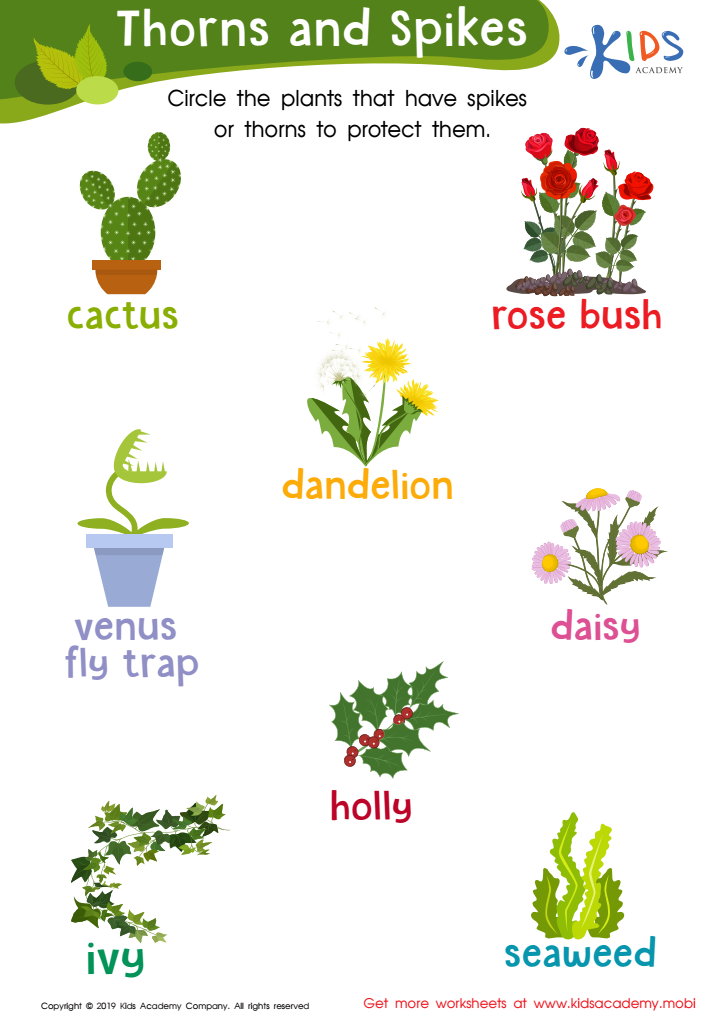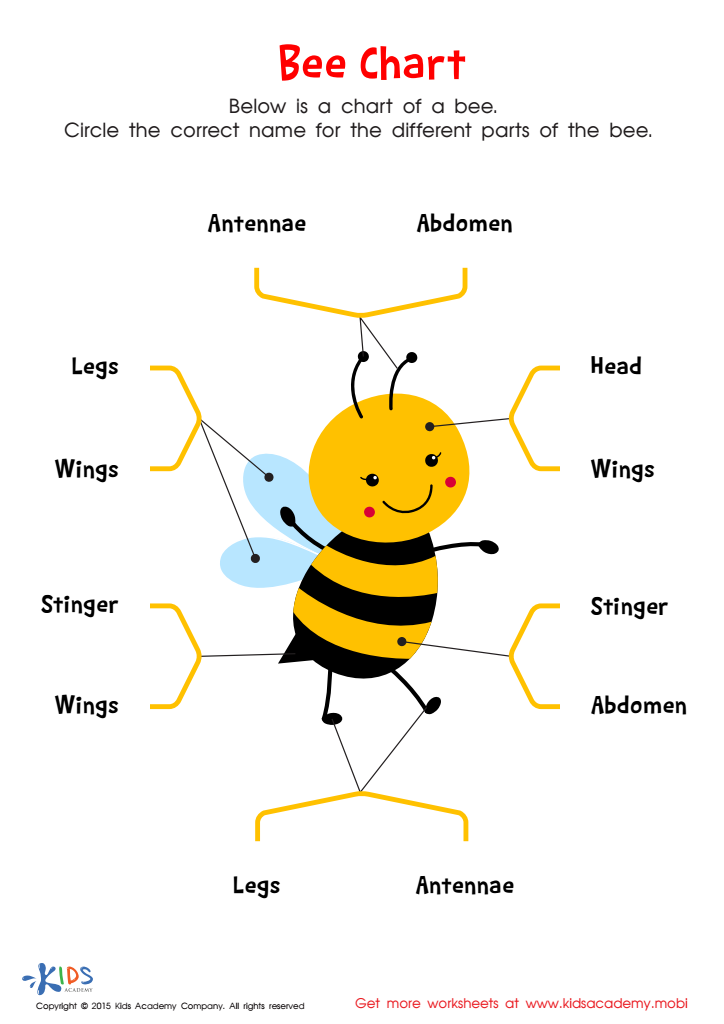Science knowledge Science Worksheets for Ages 3-6
3 filtered results
-
From - To
Discover our engaging Science Knowledge Worksheets designed specifically for children aged 3 to 6. These interactive resources inspire young learners to explore the wonders of the natural world through fun, hands-on activities. Covering essential topics such as animals, plants,天气, and the human body, our worksheets encourage curiosity and foster critical thinking skills. With vibrant illustrations and captivating exercises, children will enjoy learning while building their foundational science knowledge. Perfect for parents, educators, or homeschooling, these worksheets are simple to use and designed to create a love for science early on. Explore our printable options today and ignite your child's scientific journey!


Thorns and Spikes Worksheet


Space: Assessment 2 Worksheet
Parents and teachers should prioritize science education for children aged 3-6 as it lays the foundation for critical thinking and curiosity. At this early stage, children are naturally inquisitive, eager to explore their surroundings. Engaging them in science helps cultivate their innate curiosity, allowing them to ask questions and experiment, fostering a mindset that values inquiry.
Science education at this age also enhances problem-solving skills. Through hands-on activities like observing plants growing, exploring basic physics with water play, or understanding simple chemical reactions with baking soda and vinegar, children learn to formulate hypotheses, make predictions, and draw conclusions. This process not only supports cognitive development but also nurtures a sense of accomplishment and increases self-confidence.
Moreover, science helps children understand the world around them, encouraging a respect for nature and instilling an early sense of responsibility for the environment. It promotes creativity and imagination as children learn to think outside the box.
By integrating science into early childhood education, parents and teachers foster a lifelong love for learning. The skills, knowledge, and values developed during these formative years will serve children well in their future educational endeavors and in becoming informed, responsible adults.

 Assign to My Students
Assign to My Students
















